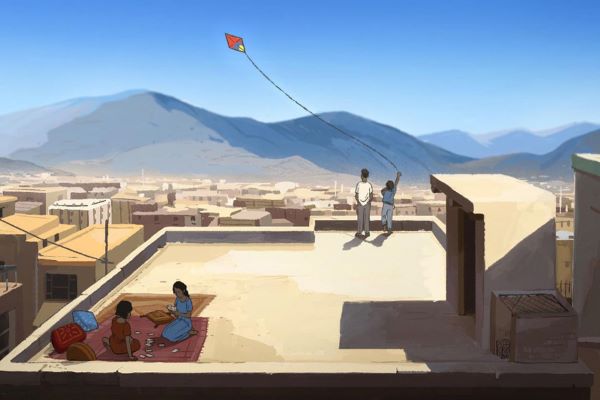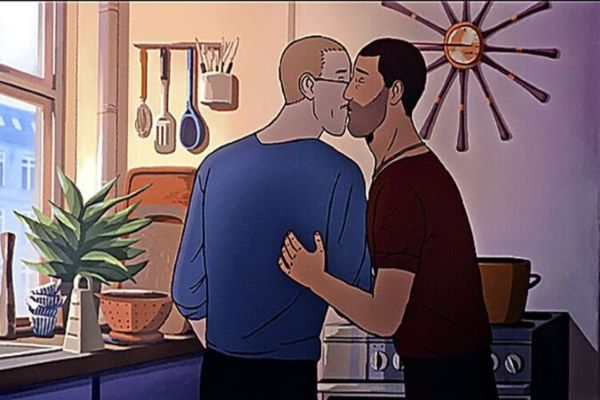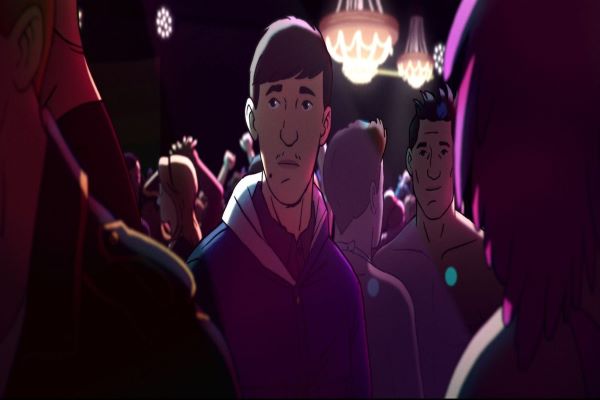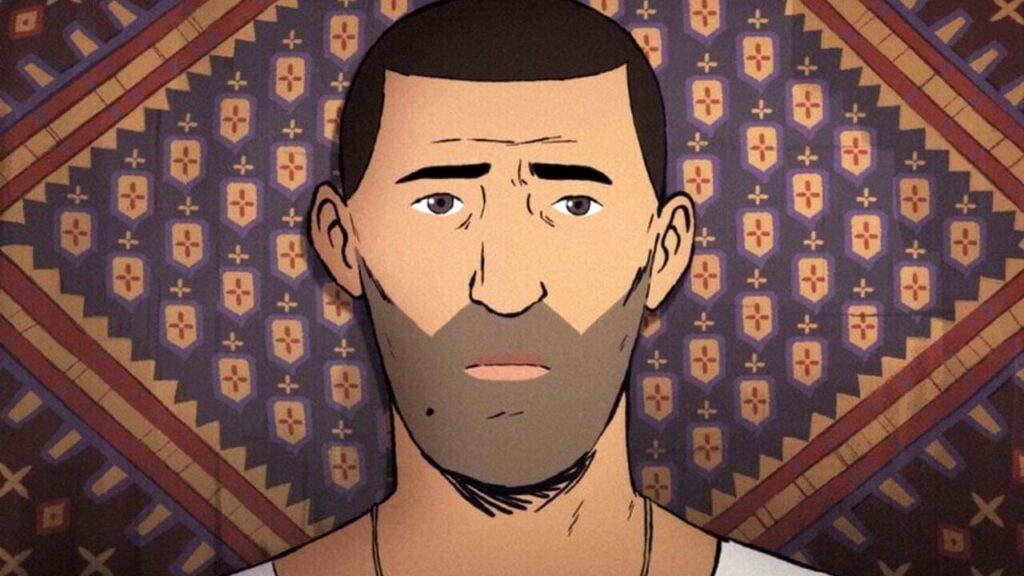Jonas Poher Rasmussen tells the story of his longtime friend Amin Nawabi (pseudonym) through his profoundly humanistic film Flee. Amin is a gay person and an Afghan refugee. The film chronicles the tumultuous life events of Amin from childhood to adulthood. His jubilant life in Kabul suddenly took a U-turn when his father was arrested and taken away by the communist government forces. In the early 1990s, the Afghan government faced severe challenges from the Mujaheedins who were about to capture Afghanistan. So, Amin and his family had to leave their beloved motherland forever. An easy, simple, and happy life sinks into the worst despair. His severe pain of being a refugee was coupled with his other identity of being a gay person. Amin had to suppress his identity for many years. After spending a few years in Russia, he finally settles down in Denmark and marries his boyfriend Kasper. However, he still carries the pain of being uprooted from his motherland. Flee not only chronicles Amin’s story but also highlights the utterly distressed situations of countless refugees all over the world. For those innumerable unfortunate uprooted people, life has never been the bed of roses.

Jonas Poher Rasmussen is a good friend of Amin and has known him for the last twenty-five years. He met Amin first time on a train and became friends in a Danish middle school that they attended together. The idea for this film came to Jonas’ mind when he participated in an animated documentary workshop named antidocs almost a decade back. However, initially, Amin was not ready to open up about his life and informed him that he would let him know once he is ready. Later, Jonas contacted him and he greenlit the project.
When the interview starts, filmmaker Johan tells Amin to relax and lie down on the bed. He already set the condition that Amin can stop the interview whenever he feels disturbed and can’t proceed any further at that moment. Opening up an utterly traumatic past for the very first time is never easy. Amin lies down on the bed, takes a deep breath, and then starts narrating his story.
The story starts with a jubilant Amin spending his childhood days with his family members in the 1984 Kabul, Afghanistan. Sometimes, he dresses up like his sisters, dances with pink headphones, and flies kites with his brother. However, his happy life does not stay long. The Soviet-backed communist government faces tough challenges from the America-backed Mujaheedins who are about to take the control of Kabul. His father gets arrested and subsequently taken away by the government forces. The family is shattered and forced to flee their motherland forever. An excruciating painful chapter starts for Amin, his family, and countless innocent Afghans.

At first, Amin and his family take refuge in Russia. The time period is one year after the downfall of the Russian communist government, and the country is full of corrupt police officials who harass them day and night. They reside in hiding and are scared to come outside. Life is like hell in Russia. Amin’s elder brother fled Afghanistan long back. He visits his family in Moscow, stands beside them firmly during this trying time, and desperately tries to get them into Sweden where he lives currently. At first, he tries to get his two sisters into Sweden via traffickers who send them to Sweden by a ship keeping them inside a container. This deplorable travel condition makes them sick but they are able to reach Sweden and meet their brother. Amin, his brother, and his mother wait for their turn.
Next, his family decides to send Amin to Sweden. This time, Amin’s brother contacts a good trafficker paying a huge sum of money to avoid any hiccups. However, instead of Sweden, Amir is sent to Copenhagen, Denmark. As per the advice of the trafficker, Amin makes up his story that he is an orphan. His family members have been killed and his sister has been abducted by the Mujaheedins. He starts living freely in Denmark as a gay person and falls in love with a fellow Danish man Kasper who is extremely supportive of his endeavors. After completing his post-doctoral program at Princeton, USA, he returns to Denmark, marries his boyfriend Kasper, and starts living in their beautiful house in the magnificent Danish countryside. Life comes to a full circle for him but not without the excruciating pain buried deep down his heart.
Filmmaker Jonas wants to tell the story of his friend Amin through this film, but his objective is not political. He does not want to exploit Amin’s life for any political gains. He has known Amin for twenty-five years and wants to portray his life struggle through this film. His motive is as simple and pure as that. However, through the punishing plight of Amin, viewers can realize and feel the excruciating pain of countless refugees all over the world. Amin is not alone. Refugees live in pathetic situations day by day. As this film shows, their stories are covered on the front pages of almost all the newspapers throughout the world, but very little is done. Multiple times, the majority of the countries ignore them. It is very difficult to narrate their sagas.

There is another aspect of this film. Amin is not only a refugee but also a gay person. In an utterly repressive country like Afghanistan, homosexuals simply can’t exist. If they are caught, they are executed. Amin realized his feelings toward men at an early age when he would dress up like his sisters, a photograph of Indian actor Anil Kapoor would wink at him, and he would be fascinated and dream about Belgian actor Jean-Claude Van Damme. Throughout his childhood, he could not express his feelings. However, it is heartening to see that his family members stood in his support when they came to know about his sexuality in Sweden, even though they initially got little surprised. His elder brother took him to a gay club. In a free and open country like Denmark, he could live his own life, fall in love, and marry his lover.
It is not easy for Amin to open up about this traumatic past. But, it is also extremely difficult to carry this emotional burden all alone. At some point in time, everyone needs to come to the terms with the past and move on. Life just does not stop at any juncture. So, even though Amin took more time to open up and director Jonas interviewed him more than fifteen times in the last decade, finally, he was able to offload his emotional burden. For making his character anonymous, Jonas tells the story through animation with hand-sketched and constructed animated images. The animation director Kenneth Ladekjaer and the art director Jess Nicholls effortlessly worked for more than five years to shape this film into reality. Flee won the Grand Jury Prize in the World Cinema Documentary Competition at the 2021 Sundance Film Festival. It was nominated for Best Animated Feature Film, Best Documentary Feature, and Best International Feature Film at the 94th Academy Awards. The film has received unanimous critical acclaim all over the world.
